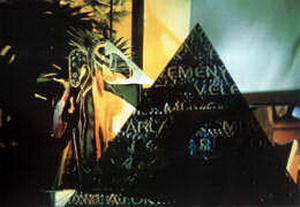In the wake of a civilization's rebirth, the pursuit of sustenance through fishing becomes an essential skill. As the world regains its balance, understanding how to fish effectively can be the difference between survival and struggle. Here are some expert tips on how to fish like a pro, ensuring that your new society thrives with the bounty of the waters.
Choosing the Right Equipment
The first step in mastering the art of fishing is to equip yourself with the right tools. Here's what you'll need:
- Rod and Reel: A sturdy rod and reel combination is crucial. For beginners, a medium-action rod with a spinning reel is often recommended.
- Line: Choose a line that matches the species you're targeting. Monofilament is versatile and durable, while fluorocarbon is nearly invisible underwater, making it ideal for targeting wary fish.
- Hooks: The size and type of hook depend on the fish you're after. Larger hooks for bigger fish, and sharp, barbed hooks for a better catch.
- Lures and Bait: Artificial lures can mimic the movement of prey, while natural bait like worms, insects, or fish eggs can be more appealing to certain species.
Learning the Basics of Fish Behavior
Understanding the habits of the fish you wish to catch is key to successful fishing. Here are some general guidelines:
- Water Temperature: Fish are cold-blooded and their metabolism slows down as water temperatures drop. Targeting fish during warmer months can increase your chances of a successful catch.
- Feeding Patterns: Fish often feed at dawn and dusk. These are prime times to fish as fish are more active during these periods.
- Habitat: Fish tend to congregate in areas with structure, such as rocks, logs, or vegetation. Identify these spots and focus your efforts there.
Mastering Casting Techniques
Casting is an essential skill for any angler. Here are some casting techniques to help you improve:
- Throwing a Cast: Hold the rod with a relaxed grip, point the rod tip towards your target, and then use a smooth, controlled motion to send the lure or bait into the water.
- Accuracy: Practice your casting until you can place your lure precisely where you want it. This is crucial for targeting specific spots or fish.
- Distance: Practice casting for distance to ensure you can reach your desired fishing spots.
Baiting and Luring Techniques
Once you've cast your line, the next step is to attract fish to your bait or lure. Here are some techniques to consider:

- Natural Bait: Live bait can be very effective. Use the natural movement and scent of the bait to attract fish. Remember to keep your bait lively and natural-looking.
- Artificial Lures: When using lures, mimic the natural prey of the fish you're targeting. Fast-moving lures can attract fish that are feeding actively, while slower-moving lures can attract fish that are more cautious.
- Timing: Pay attention to the timing of your lure's movement. A slow, steady retrieve can be more effective than a fast, erratic motion.
Reading the Water
Being able to read the water is a valuable skill that can greatly increase your chances of success. Here's how to do it:
- Surface Conditions: Look for signs of fish activity on the surface, such as bubbles, ripples, or jumps. These can indicate that fish are feeding nearby.
- Subsurface Structure: Observe the bottom of the water to identify potential fish-holding areas. Rocks, logs, and vegetation can all be productive spots.
- Water Color: Changes in water color can indicate the presence of fish. Clear water often means fish are present, while murky water may suggest they are less active.
Catch and Release
In a civilization's revival, sustainable practices are crucial. If you're not keeping your catch, consider practicing catch and release. Here are some tips:
- Handle Fish Gently: Avoid touching the fish's gills or eyes, as these are sensitive areas.
- Use Knots: Practice tying strong knots that won't harm the fish.
- Recover Quickly: Get the fish back into the water as quickly as possible to ensure its survival.
Conclusion
Fishing is not just a means of sustenance but also a connection to the natural world. By mastering the art of fishing, you not only ensure the survival of your new society but also foster a deep respect for the environment. With these tips in mind, you'll be well on your way to becoming a skilled angler, contributing to the thriving of your civilization's rebirth.












